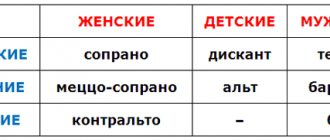| Attention! Detector article! One of the side effects from reading this article is the so-called butthurt. If you begin to feel pain in your lower back, you should immediately stop reading further and come to terms with the fact that you are a freak. |
| Your article is crap, you don’t understand anything about Russophobia. If you see this warning, it means that this article is a little less than completely depressing and you need to add interesting facts to it. In addition, it is possible that this article did not give any sense to anyone here. In this case, the only recommendation would be to move the article to the laughing section and refresh it with an invigorating portion of lulz. |
| Beware, politics! Attention! This is an article about something related to politics. She is, without a doubt, biased in someone's favor. Nobody cares. |
| « | In Russia there are only snowdrifts, Bears, vodka, pitchforks, All are only Russophobes and Slavophiles. | » |
| — Notes of the Unknown. freedom of speech | ||
The indignation of the people.
Vasya Lozhkin reveals the topic of Russophobia
(eng.
russophobia
) - a meme of the cultural crowd of this country.
It is used, in the best traditions, against any opinion different from the views of the above-mentioned crowd. It is formed from the words “Russian” and “phobia” (Greek “phobos”
- fear), which seems to tell us that anyone who disagrees with the creeds is afraid (and more often, hates) the entire people/country that they supposedly represent.
As a word, R.-phobia is a special case of “something”-phobia - one of the diagnoses-arguments in the Special Olympics: along, for example, with homophobia, ukrophobia or agencysmithism (more precisely, Judeophobia).
[edit] Actually
On the part of the culturalists, it is customary to attribute the subject to bearers of a wide variety of views, the difference between which the ascribers are not able to understand due to the narrowness of their own thinking or unwillingness to understand the diversity of these same views. This diversity is mainly represented by “Russian haters”, “Russian skeptics” and sausage emigrants.
Over the hill, in fact, many peoples are very skeptical of each other in general. less likely to meet an Englishman or a Frenchman who does not like Russian gopniks and hardbass squatters suka blyatting around,
than the Frenchman, who, for example, considers the Germans to be ill-mannered cabbage farts or the English to be island cockroaches.
As you might guess, only border peoples or peoples who often see each other on TV really dislike each other very much. Therefore, it is not surprising that the Poles dislike the Germans much more than the Russians, and all over the world, despite the distances, many people do not like the Americans and all kinds of Afghan-Pakistani Pashtuns. The same Belgians really do not like their Dutch neighbors, and they generally despise the French, despite the official languages of Flemish and French.
Social Democrats and Russophobia
For Social Democrats, Russophobia is unacceptable, since it is a manifestation of racist thinking. That is, statements that endow citizens of Russian nationality with certain special innate properties are racist and should not be used by Social Democrats for this reason. At the same time, Social Democrats cannot approve of the policies of the tsarist government, the policies of the communists in the Stalinist and post-Stalin USSR, as well as the policies of the Russian government after the collapse of the USSR. The abundant criticism of this policy by the Social Democrats may be represented by conservative forces as Russophobia, but it is not Russophobia. Criticism of the values instilled by the elites and therefore prevailing on the territory of Russia is also not Russophobia. Social Democrats must always emphasize that it is the conservative Russian governments, not the Russian people, that are reactionary.
The world cannot be free while the people of a sixth of it - the people of my homeland - live under a dictatorship, under the violence of the greatest police power that history has ever known.
Therefore, it is not true that every nation has the government it deserves! This formula is true only for those countries where democratic and not totalitarian orders exist.
This formula, too often used, sets Western countries not against the Soviet regime, but against the peoples of Russia, and thereby, with the help of Kremlin propaganda, makes them enemies of the West, rather than friends and allies, in the fight against all forms of dictatorship.
<�…>
The West's understanding of Soviet reality is a positive factor, but often comments about the Soviet Union made by some Western politicians and the press take a clearly anti-Russian form, rude and insulting to the people of Russia, and thereby allow the Kremlin to incite the people of my country against the outside world.
Thus, the Russo-eaters are arming, not weakening, the Soviet dictatorship!9
Victor Kravchenko
[edit] Habitats of Russophobia
The degree of dislike for Russians is enormous in the evil dwarf Baltic countries and in general in some states of the former social bloc, especially in starved Romania and richer Hungary and the Czech Republic (“these Russian occupiers will answer us for Budapest 1956 and the Prague Spring 1968!”) [ 1], but these people simply found in Russophobia a convenient way to explain their shitty situation, just as some of us explain their life in shitty shit not by the fact that they can’t do shit and don’t even want to be able to do it, but by the dominance of Jews or Caucasians.
In many countries, there is a very positive attitude towards Russians: for example, John Smith from the USA or Jin Hui from China will be more likely to welcome you as a Russian than not (which in itself does not cancel the fact of the existence of the subject - on the part of rednecks at the level of “migrants, go home , finally everything").
Russophobia, oddly enough, is most flourishing among the Russians themselves (which is not surprising - after all, Russians live closest to Russians), but here, as always: “It’s not me who’s in the shit, it’s the shit all around” and “We’re not like that, life is like that.”
Links
- Oleg Nemensky - Russophobia as an ideology
- Andrey Fursov - Russophobia (radio broadcast “Persona grata” with Vitaly Ushkanov from 09/04/2008)
- Andrey Fursov - Russophobia (radio broadcast “Myths about Russia” by Vladimir Medinsky dated October 21, 2008)
- Test for Russophobia. Or ten phrases that cause hatred.
- Igor Shafarevich. "Russophobia" and "Russophobia: 10 years later"
- Russophobia - Wikireality article
- Russia released a 120-page report on Russophobia in the United States - about Russiagate
| [ + ] Another camp | |
| Ideology | Myths about Russia • Fake quotes about Russia • Russophobia • Ideology of sodomy • Radical feminism • Creative class • Teenage opposition • Quotes about liberals • Orange quote book • Liberal demagoguery |
| Methods | Infowar against Russia • Color revolutions • Revolutions and coups • Separatism • Dehumanization • Bring in Raska |
| Fails | Opposition files • Yves Rocher case • Bolotnaya case • Udaltsov case • Evidence of the work of non-systemic opposition in Western countries |
| see also | Political dictionary • Creative phrasebook • Memo to the oppositionist • Handshake meter |
[edit]Who is who
Russophobes will not pass!
Russian-hatred
is a special case of hatred of the human race; in this case - on a national basis. In addition to the great Fuhrer of the German nation or the Khokhlobanderites, a famous Russian-hater was, for example, the American General Patton. Here is his statement about the Russians:
| « | We are unable to understand the Russians, any more than we can understand the Chinese or the Japanese, and, having had a wealth of experience with them, I must say that I have no particular desire to understand them, except for understanding the amount of lead and iron required to exterminate them . In addition to other Asian aspects of their character, Russians have no respect for human life - they are sons of bitches, barbarians and chronic alcoholics... | » |
For the sake of objectivity, Patton was also an anti-Semite: in his words, YERZH was “lower than animals.” So it goes. And Patton died such an absurd death that their Cadillac had to be condemned: during a slight collision of the Cadillac 75 with a truck, Patton hit his head on the glass in the cabin. About the glass of salon interior design, Karl!
Russoskepticism
— this is a critical attitude towards the peculiarities of the Russian mentality, way of life, and simply the situation in the country. By the way, Russoskepticism often slips into (or even runs like a red thread through) the works of great Russian writers, for example: Gogol (“Dead Souls”), Saltykov-Shchedrin (“The History of a City”) and many others. Lenin and Stalin can also suddenly be called Russo-skeptics: they did not trust the people under their control, but hoped to set them on the right path.
In terms of the total number and activity on the Internet, Russo-skeptics will give the socialist people a serious head start; in fact, their point of view is now generally accepted, although not always adequate to the situation.
As for the sausage emigrants,
then, as a rule, they do not feel hatred, much less fear, towards Russia. Not having received maternal love from the Motherland in their time, they simply reciprocated it. Those who experience it most often turn out to be of mixed origin (Jewish, Ukrainian, Polish, Caucasian, etc.), relatives who were repressed or otherwise suffered from the bloody regime, or an ordinary inferiority complex.
Sources
- T.F. Efremova. New dictionary of the Russian language. Explanatory and word-formative. – M.: Russian language, 2000
- Experts spoke about the causes of Russophobia in the West // RIA Novosti (ria.ru). 19 February 2021, 17:27. [Electronic resource]. URL: https://ria.ru/20200219/1564976770.html (access date: November 26, 2020).
- Most Hated Countries // The Top Tens (www.thetoptens.com). [Electronic resource]. URL: https://www.thetoptens.com/most-hated-countries/ (accessed 11/26/2020).
- Cohen gave examples of Russophobia in the American media // RIA Novosti (ria.ru). April 07, 2021, 12:10 pm. [Electronic resource]. URL: https://ria.ru/20180407/1518127408.html (access date: November 26, 2020).
- S.G. Kara-Murza. Soviet civilization / S.G. Kara-Murza. — 1200 s. - M.: Algorithm, Eksmo, 2008. - p. 105.
- Lev Rubinstein. Russians on the march // WayBack Macine (web.archive.org). 03 November 2006, 10:50. [Electronic resource]. URL: https://web.archive.org/web/20080907044611/https://www.charter97.org/bel/news/2006/11/03/ru (access date: 11/26/2020).
- Mikhail Zygar. The price of the issue // Kommersant (www.kommersant.ru). May 19, 2006. [Electronic resource]. URL: https://www.kommersant.ru/doc/674580 (access date: November 26, 2020).
- Stanislav Minin. Russophobia as an ideological weapon // Nezavisimaya Gazeta (www.ng.ru). December 18, 2009, 00:00. [Electronic resource]. URL: https://www.ng.ru/columnist/2009-12-18/100_rusophobia.html (access date: November 26, 2020).
- N.N. Berberova. Last and First: [Novel]; The Kravchenko case: [Chronicle of the trial of one of the first owls. “Defectors”, France, 1949] / N. N. Berberova. – 316 p. – M.: Publishing house named after. Sabashnikov, 2000
- Kyiv is trading in Russophobia and anti-Russian sentiments, Putin said // RIA Novosti (ria.ru). October 18, 2021, 5:27 pm. [Electronic resource]. URL: https://ria.ru/20181018/1530997169.html (access date: November 26, 2020).
- Putin: “cave Russophobes” and nationalists have declared war on the Russian language // TASS (tass.ru). November 5, 2021, 4:00 p.m. [Electronic resource]. URL: https://tass.ru/obschestvo/7080708 (date of access: November 26, 2020).
- Meeting with heads of international news agencies // President of Russia (www.kremlin.ru). June 1, 2021, 1:30 p.m. [Electronic resource]. URL: https://www.kremlin.ru/events/president/news/54650 (access date: November 26, 2020).
- The Kremlin called Obama’s words about Trump and Putin “deep Russophobia” // RBC (www.rbc.ru). September 14, 2021, 1:06 pm. [Electronic resource]. URL: https://www.rbc.ru/rbcfreenews/57d91e229a7947f0d63ac14b (access date: November 26, 2020).
- Peskov called the accusations of Russians in cyber attacks “a relapse of rabid Russophobia” // Vedomosti (www.vedomosti.ru). October 20, 2020, 2:54 pm. [Electronic resource]. URL: https://www.vedomosti.ru/politics/news/2020/10/20/843923-peskov-nazval-retsidivom-ogolteloi-rusofobii-obvineniya-rossiyan-v-kiberatakah (access date: November 26, 2020).
- Alexey Zhuravlev: In the USA they created a new exhibit for the future museum of Russophobia // Rodina Party (rodina.ru). May 12, 2021. [Electronic resource]. URL: https://rodina.ru/novosti/Aleksej-ZHuravlev-V-SSHA-sozdali-novyj-ehksponat-dlya-budushhego-Muzeya-rusofobii (date of access: November 26, 2020).
- Twitter of Alexey Pushkov // Twitter (twitter.com). December 6, 2015, 15:35. [Electronic resource]. URL: https://twitter.com/alexey_pushkov/status/673480984000598016 (access date: November 26, 2020).
- Patrushev: The West wants to destroy the common humanitarian space of the CIS // RIA Novosti (ria.ru). November 11, 2021, 6:12 pm. [Electronic resource]. URL: https://ria.ru/20191111/1560820332.html (access date: November 26, 2020).
- Dmitry Kartsev. Meduza’s absolutely comprehensive guide to Russophobia (including both extreme and rabid ones) // Meduza (meduza.io). July 18, 2021, 09:00. [Electronic resource]. URL: https://meduza.io/feature/2019/07/18/absolyutno-ischerpyvayuschiy-putevoditel-meduzy-po-rusofobii-v-tom-chisle-mahrovoy-i-ogolteloy (access date: 11/26/2020).
[edit] Subject in the Special Olympics
Get over your Russophobia!
ChSKH, the reaction of people to the speeches of Rus-haters and sausage emigrants is most often of the same type and laconic. Both of them are almost immediately sent to hell, and in the first case such a weighty argument is supported by a reference to the domestic nuclear missile potential.
In this regard, in races on the subject, the only people who oppose the creots are, as a rule, Russoskeptics. What adds fuel to the fire is the fact that they are militant nonsense, in most cases taking liberal or techno-fascist positions, and therefore willingly strive to hurt their opponents.
Also, a rich source of lulz is the squabble between the people themselves - differing in their views on such milestones of Russian history as Tsarist Russia and the USSR. Either having different religious views (Christianity vs paganism) or not having them at all. Finally, cultural debaters can come from different, albeit close, countries. And in all these cases, the subject is rarely mentioned—sometimes even on both sides.
Also, they furiously deliver walls of text on Quora, where one question “what is russophobia” evokes a crowd of Western “analysts” who prove with their fingers without proof that “there is no Russophobia”, “Russophobia was invented by the Kremlin” or “Russophobia is forced” -a meme that gets paid to spread.”
There is also an opinion that when assessing Russian design/culture, a suspiciously larger number of Western laymen shout “goofy”, “disgusting”, “looks cheap”, “tasteless” etc., but cannot explain what, say, a budget-friendly piece of junk from TAZofabrika does “ disgustingly cheap" in comparison with the Renault/subcompact car, and the "antique, but high-tech" of the new Russian is "tasteless".
What is Russophobia: a brief definition
Russophobia
– this is not hidden, openly expressed hostility, reaching the point of hatred for everything Russian. Negative feelings are manifested towards mentality, state, culture, writing - absolutely all components of the concept “Rus”, “Russian”.
Russophobia, as a form of xenophobia (non-acceptance of everything foreign) is part of the state ideology and is enshrined in the minds of the majority of the country's citizens.
The phenomenon of Russophobia is classified into two types
:
- Grassroots
– hatred of Russians, dominant among the population, ordinary people. Usually provoked by events in the world occurring with the participation or initiation of Russia. Can be adjusted by appropriate government information policy. - Elite Russophobia
is part of the policy pursued by people who have power and authority in the country. Usually has a material background. It poses a great danger to society because it is supported at the state level.
An ideology arose in the West, which historically opposed itself to Russia. Russian people were considered the antipode of Western people - uncultured, possessing the base instincts of barbarians. Until recently, the image of the country was portrayed by Russophobes as a bear dancing to the accordion of a drunken man.
Hatred of Russia is accompanied by fear of it, as the largest country in the world in area, possessing all known resources and possessing nuclear weapons.
Russia is presented by Russophobes as the eternal enemy of everything Western, including such values as democracy, freedom and liberalism.
In the world, Russophobia is intensified by the fact that Russia, despite its multi-religious nature, is the center of Orthodoxy, preserving the traditions of the religion and gathering all Christians under its wing.
[edit] Word to the classics
In general, the term “Russophobia” was introduced by the poet Tyutchev. He also gave the canonical definition of the subject, according to which Russophobia is an attack on European values and the local way of life while simultaneously being overly critical of one’s homeland. At the same time, it was attributed not to some foreign national people, but to the Russians themselves. Simply put, the subject according to Tyutchev is almost equivalent to the modern concept of “liberastia”, and not what is usually meant by this concept these days.
People also like to cite Smerdyakov, a character from The Brothers Karamazov by Fyodor Dostoevsky, as an example of the Russophobe. He, being the bastard son of the old fart Karamazov from the city holy fool, loves to talk about theological and political topics, reducing everything to the fact that the Russians must be completely killed. In this way, Smerdyakov is trying to show that he is not just a dick from the mountain, but a tall tale. It is noteworthy that at the same time he works for his own father as a footman and cook.
Nomenclature about Russophobia
Nationalist propaganda sometimes tries to claim that troubles come from Russophobia (and, as we have already found out, by this it mainly means criticism of the Russian government). However, we see that today a huge number of deputies are “fighters against Russophobia”, while life in the country is not getting better - only worse, and Russia has fewer and fewer prospects.
If a Ukrainian politician were to cut a Russia-shaped cake into pieces, politicians like Zhirinovsky would loudly declare Russophobia. And when they do such things, it is, from their point of view, normal
One of the prominent fighters against “Russophobia” is Vladimir Putin. Thus, he complained that in Ukraine they “trade in Russophobia”10, that “cave Russophobes” are trying to reduce the space of the Russian language in the world11, that Russophobia from some countries is “overflowing”12 and so on.
Putin’s press secretary Dmitry Peskov completely gave himself away when he called Barack Obama’s criticism of Putin (at that time Obama expressed displeasure that the Russian president was sending his opponents to prison) a manifestation of “deep Russophobia”13. He also called accusations against the Russian special services “Russophobia”14. Here you can very clearly see examples of attempts to cover up the nomenklatura by all representatives of Russian nationality as a whole.
Image taken from the Vedomosti newspaper website
Other nomenclature makers are not far behind. Thus, State Duma deputy Alexei Zhuravlev responded to the US Congress resolution listing violations of human rights in Russia by the Russian authorities (that is, not Russophobic - on the contrary, here the congressmen stood up for the Russian people) responded as follows: “The American collection of anti-Russian resolutions has been replenished with another strange piece of paper. Someday we will collect all these artifacts and put them on public display in the Museum of Russophobia”15. State Duma deputy Alexei Pushkov called the criticism of the Kremlin’s policies by the Belarusian writer Svetlana Alexievich “the evil stupidity of Russophobia”16. Secretary of the Russian Security Council Nikolai Patrushev stated that “the West is cultivating naked Russophobia”17.
Like, “either Russophobia has spread sharply throughout the world, or the Russian authorities have decided to explain to it some phenomena that were not previously considered Russophobia”18.
[edit] SUDDENLY they are Agent Smiths!
And for what the term has become now, let’s say thanks to the old dissident-creator, friend of Solzhenitsyn and part-time matanist Igor Shafarevich and his vyser of the same name, published back in the 1970s in Western Tamizdat thanks, oddly enough, to the efforts of dissidents - ERJ. In it, the author diligently attributed all anti-Russian fabrications to the Jews, accusing them of dreaming and seeing how to destroy Russia. After the publication of this vyser in Sovka, the term “Russophobia”, which had not previously been used even in political journalism, went to the people, or rather, to a certain part of it, losing its original meaning and acquiring undeserved odiousness.
Studying the problem
On April 3, 2015, the World Russian People's Council, headed by Patriarch Kirill of Moscow and All Rus', created the Center for Social Research and the Study of Identity Issues. The center will study Russophobia, the Russian world, and the Russian idea. Alexander Shchipkov, a member of the bureau of the World Russian People's Council, said: “We are engaged in an academic study of what Russophobia, the Russian world, the Russian land, the Russian idea are. Everyone has different meanings, but you need to understand what it is? In addition, we are engaged in the practical side - monitoring violations of the rights of Russians.” [8][9]
[edit] What about IRL?
Equality for everyone (except Russians)
And if it’s completely IRL, then Russophobia is nothing more than one of the manifestations of xenophobia in general, characteristic of the entire history of mankind, be it Judeophobia, Japanophobia among the Chinese and Koreans, for example), ethnic strife in the Balkans, Azerbaijan -Armenian srach or mutual love between Ossetians and Ingush. In addition, do not forget that a typical Russophobe, as a rule, is also an Asian/Euro/Nigrophobe, etc. in the most bizarre combinations. Most often, this is banal imperialism or xenopatriotism, when not only dear Scattered people are registered as Untermensch, but also everyone whose citizenship or nationality does not belong to the “pgavilnye”.
It so happens that it is common for a person to primarily focus on the negative properties of representatives of a particular nation, extrapolating these traits to all or the majority of its representatives. Of course, no one is sinless, and during all this time of bears rubbing against the earth’s axis, so many contradictions, conflicts and other genocides and seizures of territories have accumulated that one should not be surprised at the presence of haters and ill-wishers. And because of this, enough blood has been shed and will be shed. And only God knows how much oil will be cut.
There is cold calculation and immediate benefit. For example, the head of a construction company refuses to employ the Russian Ivan, preferring Ravshanov and Dzhamshutov, not because he hates everything Russian, but only because visitors are cheaper. Besides, they didn’t (at least) have to pay for vacations, health insurance and other niceties.
Or take the Pindos: their business simply competes with Russian ones for sales markets or for access to the extraction of natural resources. And naturally, they do not feel any love for this country and its upcoming rise.
Jews, in turn, do not like goyim as such - and do not make much difference between Russians or, for example, Arabs.
Finally, if a representative of non-Russian nationality said something unpleasant to you, this does not mean that this representative immediately hates the entire Russian people. Most likely, the problem is still with you personally.
And you should never forget that if a person hates representatives of a certain nationality, forgetting that all people are different and you shouldn’t put everyone under the same brush, then he is most likely an aggressive redneck. The main thing is to judge a person by his actions, dear friend. Although his actions, to some extent, can be determined by nationality, cultural environment, belonging to a particular country and genetics. Attempts to fully rely on these factors incite these national discords of yours are no worse than targeted stuffing.
Appearance of the term
The word “Russophobia” was first used in 1867, in a letter from the great Russian poet and diplomat Fyodor Ivanovich Tyutchev to his daughter. Tyutchev’s remark turned out so well that it can be inserted into modern articles without correcting a single word in it:
| We are talking about the Russophobia of some Russians - and very revered ones at that... Before they told us, and they said it completely sincerely, that Russia disgusts them with the lack of rights, freedom of speech, etc., etc., and Europe inspires them with tender love precisely because of the presence there all this... What do we see now? As Russia, seeking some relief, asserts itself more and more, the disgust of these gentlemen towards it only grows. For, apparently, the previous order never aroused in them such fierce hatred as modern trends in national thought... And on the contrary, no matter how much law, morality, and civilization itself are trampled in Europe, this, as we see, does not in the least diminish their favor west. They still sympathize with the Poles and find completely natural the vile policy of the Western powers towards Eastern Christians, etc., etc. In a word, in the phenomenon I have indicated, principles, as such, are in no way involved, there is nothing here except instincts , and it is the nature of these instincts that needs to be analyzed. [2] |
Who is Russophobe
A Russophobe is a person who has a feeling of hatred towards everything connected with Russia and Russian people, who denies that Russians have any positive characteristics and demonizes them.
The question often arises as to why Russophobia is associated with hatred, since the word “phobia” is translated as “fear.” Hatred is meant by another word “misos”, from which such concepts as misanthrope and misogyny originate.
However, there are no contradictions. A person cannot love what he is afraid of and what causes panic in him. And vice versa, what is loved and pleasant cannot cause fear and panic. Therefore, the Russophobe experiences two feelings towards the Russian – hatred and fear.
Russophobes tend to attribute all the troubles and mistakes of their own government to the Russians and associate them with the machinations of Russia. Elite Russophobes use any informational reason to incite hatred towards the country.
Such people’s attitude towards Russia is always biased, not objective, and any action or statement is considered in advance as hostile and threatening.
For the first time, the term “Russophobia” as a scientific concept was introduced by F.I.
Tyutchev (although Pushkin thought about this before him). It was he who was one of the first, as an alternative to Russophobia, to put forward the idea of an Orthodox empire that would arise after all the cataclysms, as well as the spiritual, material and territorial losses that we have today. Many like-minded people of Tyutchev, great figures of Russian thought, such as A.S., were inclined towards similar ideas. Khomyakov, I.V. Kireevsky, I.S. Aksakov, Yu.F. Samarin, F.M. Dostoevsky, N.Ya. Danilevsky, V.I. Lamansky, N.P. Gilyarov-Platonov, N.N. Strakhov, K.N. Leontyev.
It is known that for a long time Tyutchev served in the diplomatic field in Munich, Genoa and Turin and could closely observe the manifestation of Russophobia both from the West and from some representatives of the Russian nobility and intelligentsia. It especially intensified on the eve and during the revolutions in Europe of 1848-49. He reflected all this in political poems, articles, in the unfinished treatise “Russia and the West,” as well as in letters.
Tyutchev has been researching the reasons for this situation for a number of years. But at the same time, he initially believed that the hostility of the West towards Russia would largely sober up our people who had a negative and biased attitude towards their country. He still hoped that this influence would encourage them to return to their origins and “go deeper into themselves.”
However, over the years, assessing the state of society after the reforms of the 60s, Tyutchev sees slow changes in public consciousness. So, in 1867, in a letter to his relatives, cited by V.V. Kozhinov, in his book “The Fate of Russia: Yesterday, Today, Tomorrow” (1997), the poet assesses the Russophobia of the Russians themselves: “It would be possible to give an analysis of the modern phenomenon, which is becoming increasingly pathological. This is the Russophobia of some Russian people—who, by the way, are very revered.” If earlier, Tyutchev notes, these people criticized the era of Nicholas I for lack of rights and lack of freedom of the press, then already during the reforms of Alexander II, when freedoms seemed to be strengthening and self-affirming in the country, “the dislike of these gentlemen only intensified.” But no violations in the field of justice and morality in the West “in the least reduced their passion for it.”
If I had not mentioned that this was written by Tyutchev, hardly anyone would have doubted that it was written today...
The most striking examples of Russophobia on the part of the West were given by Tyutchev’s friend and like-minded person - the famous Slavist, publicist and public figure of the Slavophil movement of the 19th century, V.I. Lamansky (1833 - 1916). In his work “On the Historical Study of the Greco-Slavic World,” he noted the manifestation of Russophobia towards the Slavic peoples in general and towards Russia in particular. In this regard, the thinker cites the statement of German scientists about Russians. In one German magazine, published in Austria at the beginning of the 19th century, the character of the Russian is described as follows: “The character of the Russian is common to all Slavs - distrustful, deceptive, cunning, without the slightest affection, without religion, extremely stupid and rude, given over to drunkenness and debauchery.” . This is precisely where Lamansky sees the negative and contemptuous attitude of “civilized” Germans towards Russians in this case and towards the Slavs in particular. The scientist also supported Tyutchev in countering Russophobia with the idea of an empire, seeing a positive meaning in this.
N.Ya. also made a great contribution to the study of this issue. Danilevsky. He was the first to introduce into circulation the concept of cultural and historical types that exist, develop and replace each other. He considered Russia a young and developing cultural-historical type, capable in the future of replacing the German-Roman type, which is currently beginning to experience a stage of political and cultural crisis and a time of intensification of civilizational processes. And it is precisely the fear of losing all one’s power that, from Danilevsky’s point of view, is the reason for the West’s fear and distrust of Russia, i.e. manifestations of Russophobia. In the independence and self-development of a new type (of which Russia is a central part) from the West, the thinker sees protection from the manifestation of Russophobia in Russia.
| See also: LEONTIEF RENAISSANCE | |||
K.N. Leontyev, in his journalistic articles and in the work “Byzantism and Slavism,” continued his criticism of this phenomenon, and together with F.I. Tyutchev, V.I. Lamansky and N.Ya. Danilevsky supported the idea of a future empire as a counterbalance to Russophobia. But on the other hand, the thinker expanded the boundaries of the future empire, including a number of Muslim and Buddhist peoples in its orbit.
I.S. also spoke out against the manifestation of Russophobia in his political articles. Aksakov. In Slavophile journals, he also criticized various manifestations of Russophobia both on the part of individual Russians and on the part of the West. In this regard, he for the first time highlighted the Slavic, Polish and Jewish issues, clarifying the cause of Russophobia in the last century and largely identified problems for their future resolutions.
In the twentieth century, Russophobia was criticized by V.V. Rozanov, L.A. Tikhomirov, M.O. Menshikov, V.V. Shulgin, G.P. Fedotov, S.N. Bulgakov, N.A. Berdyaev, L.P. Karsavin, I.A. Ilyin, I.L. Solonevich, participants in the Eurasian movement (N. Trubetskoy, P. Savitsky, G. Vernadsky, N. Alekseev), A.F. Losev, as well as L.N. Gumilev, A.I. Solzhenitsyn, I.R. Shafarevich, V.V. Kozhinov, Deacon A. Kuraev, Yu. Vorobyovsky.
G.I. Fedotov drew attention to the influence of certain Jewish circles on the intelligentsia and the revolution in Russia. From his point of view, Jewry became, like the Russian intelligentsia of the Petrine era, as groundless as possible and unusually active under the pressure of a thousand years of press. And it immediately takes its leading place in the revolution.
I.L. also criticized this phenomenon. Solonevich. In counterbalance to Russophobia, he put forward the idea of a people's monarchy, while criticizing many Russian and Western writers, historians and philosophers for misunderstanding and underestimating Russia. At the same time, he noted the endurance of the people, who, in his opinion, were performing a spiritual and moral feat, developing and equipping their country. He attributed Russia to a special and diverse civilization, which can only exist in the form of a people's monarchy, the beginnings of which were observed in Ancient Rus' and were suspended by the reforms of Peter I.
What is the reason for hatred of Russia? The main reason, it seems to me, is that Russia, despite all its current difficulties and troubles, is still a counterforce to the United States and the West in establishing the world order and anti-Christian forces. And therefore the West continues to exert powerful pressure against the strengthening of Russia, which, if powerful, can prevent the world from complete spiritual and physical catastrophe.
However, not only the external manifestation of Russophobia is dangerous, but also the internal one. Today, compared even to what existed before, Russia’s internal opponents have strengthened, strengthened and even seized power in the country. This is confirmed by such a well-known specialist in the field of Russophobia as Academician I.R. Shafarevich, more familiar to the educated reader, as the author of the work of the same name “Russophobia”, published first abroad in the late 70s, and in the late 80s in Russia.
| See also: INTERVIEW WITH ACADEMICIAN IGOR ROSTISLAVOVICH SHAFAREVICH | |||
Shafarevich studied in this work Russophobic circles both among Russian dissidents (A. Yanov, G. Pomerants, B. Shragin, A. Galich) and Western (R. Pipes, F. Hayek) and came to the conclusion that the main role in It is precisely a special part of the Jewish society that is playing a role in inciting Russophobia, but now under a different political banner. Now they sharply criticize everything that was created by past and present generations and especially strongly condemn both the achievements and shortcomings of the Stalin era. That. the main task of these circles is to destroy the state structure of Russia from the inside (including inciting ethnic hatred in the former USSR and in Russia, and especially against the Russian-speaking population in the autonomous and union republics). The authors of such articles are irritated by the fear that our country will rely on its historical traditions.
At the same time, our future is offered a choice of only two possibilities: “Western-style democracy” and “totalitarianism.” Shafarevich believes that during a crisis and turning point in the life of a people, the same “small people” arises; all life attitudes are opposite to the worldview of the rest of the people. And being cut off from it, he looks at it only as a material and at its processing as a purely technical problem, because its decision is not limited by any moral principles and norms.
In the recently published book “The Russian people at the turn of the millennium. “Running a race with death,” the academician assesses the current situation in the country. As then, so now, Shafarevich, in addition to Russophobia on the part of the Russians themselves, also sees Russophobia among part of the Jewry who lives in Russia and is deliberately destroying it from within. This trend is not purely national.
In this regard, he repeats L.P. Karsavin, who in his article “Russia and the Jews” spoke about assimilated Jewry, to which not only traditionally living Russians, but also traditionalist Jews are alien. This type is not dangerous in a healthy culture, but if the culture of a people becomes ill, then it penetrates into its most painful places and can ultimately subjugate the people living in a given territory.
It is easily joined by forces that are divorced from their people, hostile to any national tradition and play a colossal role, especially in the media around the world. Any objection, from Shafarevich’s point of view, “was presented as racial hatred towards the Jew as such.”
Next, he cites statements from this circle of people about Russia, which can be entitled “They are about us”: “Russia has brought more evil into the world than any other country”, “Our own national culture is completely alien to the Russian people”, “Byzantine and Tatar imperfections " etc.
If earlier books from which the academician quoted were published in samizdat, now they are printed in mass editions and drummed into us through television.
However, this applies not only to Jews, but to that part of Russians who have lost their national roots. Shafarevich cites a dialogue between Dostoevsky and a Westerner. For some reason it was said: the people will not allow this. “So eliminate the people,” said the Westerner calmly and majestically. And as a result, at the beginning of the twentieth century, the extermination of the people who did not want to give up their traditions began, which continues to this day.
The academician sees a way out of this situation in the opposition of nationally-minded intellectuals to Russophobes of all stripes. Based on this, it is they who should look for ways out of the crisis and defend the right to discuss any of their problems, regardless of whether someone likes it or not.
At all times in the history of Russia, the problem of Russophobia has existed, but today’s situation in the country requires strengthening and strengthening the fight against such a phenomenon, taking into account the geographical, ethnographic, historical, cultural and spiritual features of the country’s development.
Sergey Labanov
See also:
Analytics:
Fyodor Tyutchev: Russophobia against the Empire On the meaning of Russian neoconservatism
A new redivision of the world on the threshold of the 3rd millennium: geopolitical and historiosophical aspect
Russia and the global eastern question
“Russia and Europe” on the threshold of the 3rd millennium
Interview:
Interview with academician Igor Rostislavovich Shafarevich
Internet magazine:
Fedor Dostoevsky. Post Scriptum. Slavic idea.
History documents:
Between two evils: the historical choice of Alexander Nevsky
Classification definition
Although many of us are well aware of the word Russophobia, it is quite difficult to classify this concept. In fact, there are two theories for dividing Russophobic ideology into types. According to the first, which belongs to Semyon Charny, Russophobia is divided into elite and grassroots:
- Elite is of a political nature and involves the commission of anti-Russian actions by any power or its regions.
- The grassroots refers to the broad masses who are opposed to Russia.
These two varieties do not always exist in parallel with each other. It happens that they unite, thus forming a goal leading to the expulsion or liquidation of a people.
But the author of the second concept, A.I. Fursov, is confident that Russophobia cannot always be an integral ideological system, but simply represent a temporary deterioration in attitudes towards the Russian people, caused by the onset of certain events.
Is it possible to fight Russophobia?
Russophobia, like any phobia, is by definition irrational, just like hatred. Therefore, it is almost impossible to overcome Russophobia. All positive and logical actions are distorted by Russophobes and presented in an unfavorable light.
Everything good and understandable that is undertaken in relations with other countries is presented either as special meanness or as ingratitude. Any concessions are taken as weakness and flirting.
Defending one's own positions and borders is presented as authoritarianism and aggression. In such conditions it is very difficult to prove your loyalty and good intentions.
In this context, trying to please Russophobes is a road to nowhere. The only way to overcome hatred is to become a weak and disinterested power or to accept the rules of the game imposed by the West and the United States, that is, to capitulate. We, as a country, do not need such an outcome. All that remains for us is to become a great power and strengthen our economic and political positions.
Manifestations of Russophobia can be minimized peacefully. To do this, it is necessary to carry out a competent information policy, showing the country and people in real colors. For example, the 2021 FIFA World Cup has attracted a large number of tourists from all over the world to Russia.
Foreigners, or ordinary people, were able to see with their own eyes that Russia is a civilized and cultural country, and its residents are predominantly pacific towards foreigners, friendly and hospitable.











